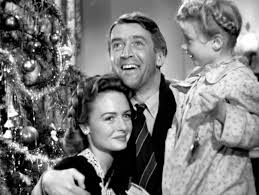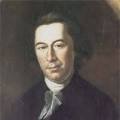Christmas in July
Posted by Jason, from the Black Hills of South Dakota on Jul 2nd 2017
This idea of “Christmas in July,” contrary to what most people think, is not a recent phenomenon. It goes back many years. Yes, there was a movie by that title that was released in 1940, staring Dick Powell and Ellen Drew. But if you really dig deep, you’ll find the first reference to “Christmas in July” in a song that was part an 1892 opera by Édouard Blau, Paul Millet, and Georges Hartman named “Werther.” In the story, kids are rehearsing a Christmas song in July, and they were being criticized for rushing the season, not good. Even then, kids couldn’t wait for Christmas, it seems. There are also a number of other instances where the season was rushed, more famously by the greeting card industry when, in 1944, the greeting card industry promoted an early Christmas mailing campaign for our troops overseas – in July. This time it was good, no criticism.
 More recently, if you count 1950 as recent, advertisers began the “Christmas in July” theme for print advertising as a marketing tool. Stores began to have “Christmas in July” sales. As the years rolled by, television stations began re-running everyone’s favorite Christmas movies, like “Christmas in Connecticut”, “It’s a Wonderful Life,” “Miracle on 34th Street”, “It Happened on Fifth Avenue,” and so on. If all this sounds like marketing just to promote sales, you’d be right. It’s the same as what the greeting card companies do on Mother’s Day and Father’s Day. Hallmark even has cable channels for marketing. You can watch a great Christmas movie in July, and watch Hallmark commercials featuring touching scenes of people finding the perfect greeting card for a long lost friend, a beloved teacher, or for someone celebrated in your life as having made a difference.
More recently, if you count 1950 as recent, advertisers began the “Christmas in July” theme for print advertising as a marketing tool. Stores began to have “Christmas in July” sales. As the years rolled by, television stations began re-running everyone’s favorite Christmas movies, like “Christmas in Connecticut”, “It’s a Wonderful Life,” “Miracle on 34th Street”, “It Happened on Fifth Avenue,” and so on. If all this sounds like marketing just to promote sales, you’d be right. It’s the same as what the greeting card companies do on Mother’s Day and Father’s Day. Hallmark even has cable channels for marketing. You can watch a great Christmas movie in July, and watch Hallmark commercials featuring touching scenes of people finding the perfect greeting card for a long lost friend, a beloved teacher, or for someone celebrated in your life as having made a difference.

If you are somewhat cynical, you can see through all of this. “Christmas in July” – well, it’s about marketing, sales, and profits. Not that that is a bad thing. After all, we all believe in the free markets, and the freedom to do as we wish.
I have another take on “Christmas in July.” I got the idea after listening to a well-known economist’s weekly pod-cast on WABC-AM radio out of New York City. That would be “The Larry Kudlow Show.” On his July 4th holiday weekend broadcast this year, Larry’s opening monologue started out by celebrating the wonderful freedoms we enjoy in American, as Americans. He refreshed our memories with the treasured words in our Declaration of Independence, which in the second sentence reads, “We hold these truths to be self-evident, that all men are created equal, that they are endowed by their Creator with certain unalienable Rights, that among these are Life, Liberty and the pursuit of Happiness.” That’s when it hit me. We all have warm feelings during the Christmas season, starting out with Thanksgiving, a time when we give thanks for the gifts we have. That carries through to Christmas with the exchanging of gifts. In July, it's the gift of Freedom that's important.
As for “Christmas in July,” let’s celebrate the gifts given to us by our forefathers who founded this great nation. Let’s celebrate these gifts for the entire month of July - for an event (the signing of the Declaration of Independence) that enables us to think, say, worship, and pray the way we want to. What a gift to mankind – to think we are all entitled to pursue life in any way we want, to pursue liberty and private property, and to do anything we want to find happiness. It wasn’t always that way.
This is the true gift of “Christmas in July.” In June and July, 1776, five brilliant people, appointed by the Continental Congress and known as the “Committee of Five,” were assigned to draft a Declaration of Independence. What resulted was a new idea that had never before in history been articulated. At the time, it was a radical notion that our rights as humans are derived by a Creator, not a government, a king, or lord-master. We take it for granted today that Thomas Jefferson, Benjamin Franklin, John Adam, Roger Sherman, and Robert R. Livingston pursued such unheard of thinking. Even a cynic can appreciate the profound implications of such radical thinking. It was truly a gift - it was truly “Christmas in July.”
Of course we know it was a long struggle, which had actually started before the Declaration was signed on July 4, 1776: beginning at Lexington and Concord in April, 1775; then the Battle of Bunker Hill in June, 1775; followed by the Evacuation of Boston in March, 1776.
We had “had it up to here.” With open warfare already upon us, our greatest gift was finalized and handed over to us on July 4th. The signatories knew the seriousness of their initiative, which was acknowledged in the final section of the declaration where it reads, in part, “We, therefore, . . . do, . . . solemnly declare, that these united colonies are, and of right ought to be, FREE AND INDEPENDENT STATES . . . we mutually pledge to each other our lives, our fortunes, and our sacred honor.”
So we celebrate. On July 3rd, knowing of the momentous event that was about to unfold the next day, John Adams wrote to his wife, Abigail, that he wanted the occasion of our Declaration of Independence to be commemorated “with Pomp and Parade, with Shews, Games, Sports, Guns, Bells, Bonfires and Illuminations from one End of this Continent to the other from this Time forward forever more.”
As we celebrate July 4th with picnics and fireworks and, yes, with marketing efforts to get us to spend money on things, let’s not forget the gift of our forefathers - the gift to pursue life, liberty and our own brand of happiness. It was a never before heard of idea prior to July 4, 1776. And if we look around the world today, we see that it’s still rare.
To all motorcyclists everywhere, we have an independent streak; we know how to live, we love, and we appreciate our liberty and the pursuit of happiness. Happy “Christmas in July.”






